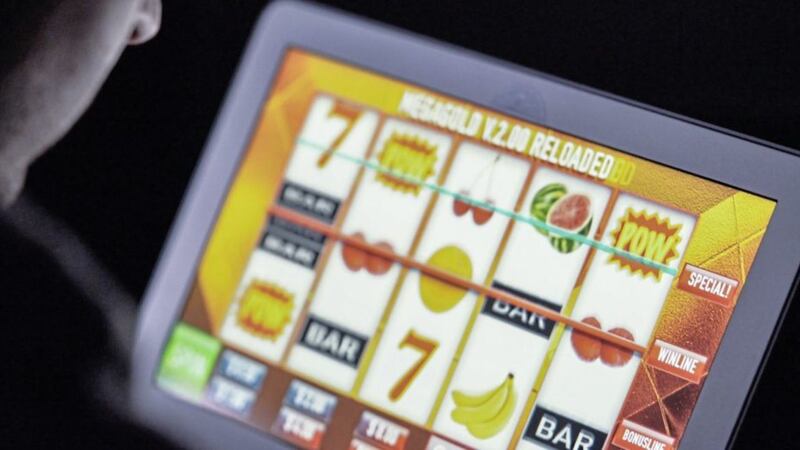The harm caused by problem gambling should feature in Northern Ireland's school curriculum, public health experts have said.
The impact of advertising on children should be properly assessed, clinicians from the Faculty of Public Health warned.
Recovering addict Philip McGuigan lost more than £100,000.
The Sinn Féin assembly member said: "It is impacting children at a much younger age and in bigger and bigger quantities and it needs tackled otherwise we are going to have a growing epidemic of problem gambling among young people."
Psychological distress, the breakdown of relationships and bruised finances can also result from placing wagers, the Faculty said in a submission to the Stormont department examining future regulation.
The charity represents large numbers of public health professionals, including in Northern Ireland.
It added: "The review of the gambling legislation should take a multi-department approach in minimising potential harm and we would support the introduction of gambling education in the Northern Ireland schools curriculum, an assessment of the impact of advertising on children and young people, (and) further research into the impact and accessibility of online gambling and gaming platforms."
It also called for a UK gambling strategy to reduce the harm caused to families, children and young people.
It followed overwhelming public support for creation of a regulatory body, official documents show.
Mr McGuigan said: "Gambling now in the era of digital technology is reaching children at a much younger age.
"You can gamble on the iPhone, iPad, gaming companies are now actively targeting young children and initiating them into gambling practices."
In the Republic, gambling among teenagers has more than doubled in the last four years, a study found.
Mr McGuigan said that means 1,200 people aged 15 and 16 are problem gamblers.
The Faculty said: "Harm from gambling can be experienced at the individual, social and community/societal level.
"This may take the shape of relationship breakdown, interpersonal conflict, emotional/psychological distress, health, and financial impacts."
It responded to a consultation on the future of the gambling industry held by the Communities Department.
The establishment of casinos was backed by more than three-fifths of those canvassed and a majority believe restrictions on bookmakers' opening hours should be relaxed, the department's report said.
Nine in 10 support creating a regulatory body for gambling.
Almost all those questioned (97%) agree that the industry should help fund research, education and treatment of problem gamblers.
More than two-thirds (68%) agree the law should be amended to remove the £1 stake limit on society lotteries.
The Church of Ireland expressed "deep concerns" about increasing the volumes of money involved with gambling machines.
It added: "As such we would like to see no increase in stakes and specifically no ability to use debit/credit cards, apps or other mobile payment systems for these machines."
The Methodist Church in Ireland said there should be no contactless payments as a direct form of payment for gaming machines.
The Betting and Gaming Council, which represents the industry, said: "Gaming machines in betting shops in Northern Ireland and Great Britain have the highest safer gambling measures on any gaming machines in the world.
"Our members' machines enable customers to set time and spend limits and provide regular safer gambling messaging."
It warned against "duplication" of regulatory requirements which would place a further financial burden upon operators but recognised the need to update the rules.








